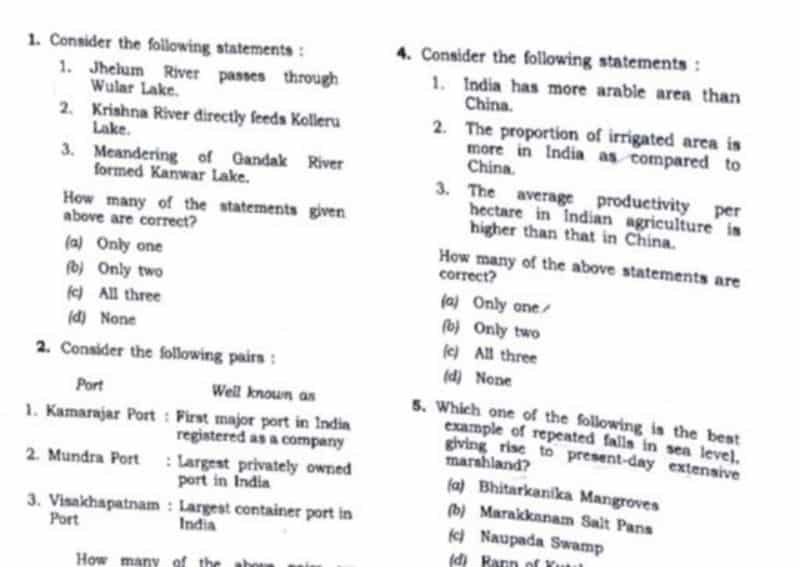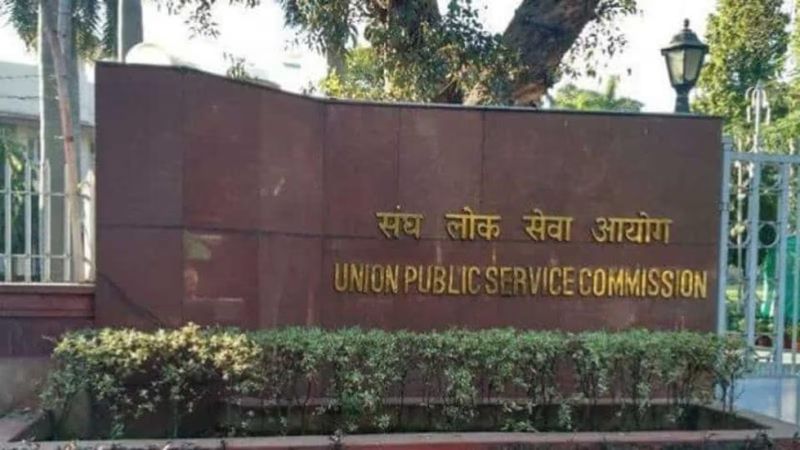UPSC conducts the prestigious Civil Services Examination every year. This year, the examination was held on May 28th. However, the renowned body has surprised us all by altering the question pattern. Specifically, they have changed the way options are presented in the multiple choice questions. This change in pattern has attracted attention from various sectors.
Notable teachers from coaching centers and experienced professionals in the field have commented on it. Currently, the entire student community, whether preparing or planning to prepare for UPSC, is in a state of panic. Is this shift random? Does the constitutional body have a rationale behind such a change? What is the way forward for aspirants? Let’s delve into these questions in detail!
1. What is the Change in the Pattern?
There has been a lot of hype surrounding the new pattern of questions introduced by UPSC. However, the main change can be summarized in a single sentence: UPSC has eliminated the ‘elimination method’. Additionally, there has been a noticeable increase in factual recall-based questions, although the rise is not particularly steep. Previously, students relied on the elimination method to identify the correct answers. However, with no opportunity for elimination, students have expressed a sense of confusion during the examination. Many have claimed that the paper was lengthy and time-consuming.
Nevertheless, this change is not entirely unexpected for UPSC. The examination is known for asking long, analytical questions that require a thorough application of knowledge. Experts suggest that this is a way to assess the decision-making abilities of future leaders of the nation. However, the confusion arising from this change has contributed to the perception of the paper as being longer than before.
Interestingly, this change was not entirely sudden. In the Civil Services Examination of 2022, UPSC provided a hint of these new types of questions by including a few “match the pair” questions in the new format. However, no one anticipated that the entire set of questions would be presented in this manner in the current examination. In the 2022 paper, only 4 or 5 questions followed the new pattern.
1. Was There Any Bias in favor of Science Students?
a) Paper 2-qualifying in nature but can’t be ignored anymore:
Many experts have raised the question of the purpose of the paper and what UPSC is trying to assess, considering the changing pattern. In this regard, let’s examine whether there was any bias in favor of science students.
When considering the second paper, known as CSAT, it is evident that individuals with a strong foundation in mathematics may have had an advantage. While the problems may not have required advanced mathematical skills, a clear understanding of basic mathematical concepts was necessary. Additionally, the paper was structured in a way that made it impossible to meet the qualifying criteria without attempting the “English” section. Aspirants can confidently state that, although the paper may have appeared challenging at first glance, it struck a delicate balance. Despite what some people are saying, the paper did not favor aspirants from specific educational backgrounds.
b) Paper 1 – Changed for all

Now, let’s turn our attention to the first and primary paper, which is GS-1, and explore various perspectives. This article has highlighted the major changes in the examination, and it is crucial to understand the implications of these changes.
In today’s world, modern bureaucrats are confronted with complex challenges that require them to be more creative than ever. By presenting them with a test like GS-1, UPSC aims to evaluate their inherent problem-solving abilities, conceptual understanding, and leadership qualities. Therefore, it would be misleading to label these changes as biased.
This time, UPSC ensured that aspirants cannot avoid science-related questions by solely relying on subjects from the arts field. It is needless to emphasize the importance of having a clear understanding of basic science concepts in day-to-day administration and policy formulation. Thus, it can be stated that the paper was fair from all aspects, considering the broader requirements of the bureaucratic role.
3. Preparation Strategy for Aspirants
First and foremost, it is important for students to remember that UPSC has not changed its syllabus. Rather, it has deviated from the usual and expected way of asking questions. The questions now cover interdisciplinary subjects and require a keen understanding of current affairs. Therefore, regular reading of newspapers cannot be substituted. It is essential to have a strong grasp of the details regarding burning contemporary issues in order to answer most of the questions. This indicates that the new trend in UPSC does not simply want aspirants to memorize facts from a predefined booklist. The most prestigious examination of all seeks competence in students who can meet the demands of modern times.
While it is not necessary to discard standard books, as they provide a foundation and conceptual clarity, the changing times require us to reevaluate our study techniques. Students need to absorb the concepts and apply their knowledge to understand current events. A comprehensive and well-rounded preparation strategy is expected from those taking the exam. Rote memorization can help in solving purely factual questions and one-liners. For instance, in the UPSC Civil Services Examination of 2023, there were questions on the “Wolbachia method” and the geographical location of Ukraine, which required factual recall. However, only a few questions in the examination are based on such facts, usually relevant to current events. While the Russia-Ukraine war has been making headlines for the past year, the spread of dengue and the innovative Wolbachia method have also garnered significant attention. Both factual knowledge and conceptual understanding are equally important for this examination, and a balanced preparation strategy must encompass both aspects.
4. Comparison with Other UPSC examination
UPSC surprised everyone with the new pattern in the Civil Services Examination, leading to speculations about whether this change would also apply to other examinations. On July 2nd, UPSC conducted examinations for two important Group A services – EPFO and APFC. These exams were conducted on the same day, but no such changes were made in their question papers. In fact, the weightage ratio of questions from different parts of the syllabus remained the same as in previous years. What can we understand from this?
Since EPFO and APFC are exams for specific services, they are different from the generalist examination like the Civil Services. These exams inherently prefer students from a commerce background, as some knowledge of accounting principles and auditing is required to clear them. UPSC did not feel the need to make changes in these specialized services. However, as civil servants are expected to be generalists, they need to have a broad knowledge base encompassing India’s economy, constitution, current affairs, as well as concepts of environment and science.
From this perspective, we can safely conclude that the change in pattern is specifically dedicated to UPSC Civil Service aspirants and does not apply to all examinations.
In conclusion, UPSC always considers the diversity of students appearing from various socio-economic backgrounds and takes into account the wide range of educational backgrounds of over 10 lakh students. Therefore, any changes introduced by the esteemed body are designed to avoid disadvantaging any particular section. The elimination of the elimination method is aimed at filtering out the most exceptional candidates. UPSC periodically changes its pattern to keep up with the evolving times and requirements. While the changes may have seemed drastic at first, the truth is that they were not. The deviation from the weightage ratio of questions from different sections of the syllabus may have surprised students, but there is no fixed rulebook that UPSC follows in selecting questions. The trend set by UPSC is the only data available regarding these ratios, and it is not a promise made by the body.
Technically, UPSC has the freedom to ask any number of questions from any section. Aspirants should strive to become well-rounded individuals, which is the demand of the most challenging job in the country. Only time will tell whether this new pattern will become a permanent fixture or if UPSC will surprise us with more changes. Students must not lose hope and continue their preparation with the points mentioned in this article in mind.


